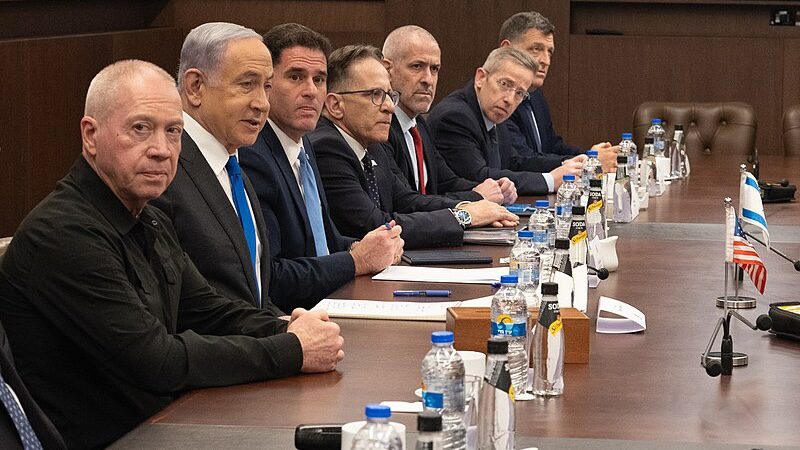Israel’s unprecedented dismissal of a Shin Bet chief amid war signals a dangerous populist trend—leaders undermining intelligence agencies for political control, from Tel Aviv to Washington.

More than a year after the October 7 Hamas attacks, Israel is now facing a different kind of threat — one from within.
For the first time in its 77-year history, the Israeli government voted to dismiss the head of Shin Bet, the country’s internal intelligence agency. The move has triggered a constitutional crisis, a bitter feud between the executive and one of the nation’s most vital security organs.
And it’s happening during wartime.
A Battle Inside Israel’s Security Apparatus
Outgoing Shin Bet chief Ronen Bar, still serving, didn’t go quietly. In a rare public statement, he directly accused Prime Minister Benjamin Netanyahu of undermining national security.
The Israeli Supreme Court declared the dismissal illegal, yet Netanyahu is pushing forward with a replacement: a military officer with no intelligence experience, but strong personal ties to his inner circle.
This internal standoff unfolds while Shin Bet remains deeply embedded in Israel’s war effort in Gaza, a conflict where intelligence coordination is critical. In the middle of a national emergency, Netanyahu is dismantling trust and continuity at the top of Israel’s security hierarchy.
The Populist Playbook
This is not just an Israeli story. It’s part of a growing global pattern.
From Venezuela to Turkey, from Russia to Hungary, populist leaders have clashed with intelligence services. Even in the United States, terms like “deep state” have been used to discredit professional security officials.
The logic is simple but dangerous: label intelligence agencies as elitist, unaccountable, or even treasonous, then strip them of independence and replace professionals with political loyalists.
This isn’t just about power — it’s about eliminating obstacles to unchecked authority.
Why Target Intelligence Agencies?
Why would a leader weaken their own security apparatus, especially during war?
Because intelligence institutions check executive power. They provide independent assessments of national threats, security policy, and sometimes even government misconduct.
In the populist narrative, spies become scapegoats. If a policy fails, blame the “unelected bureaucrats.” If a scandal erupts, accuse the “deep state.” When leaders deflect accountability, the intelligence community becomes a political target.
By seizing control over these bodies, populists gain the ability to repress dissent, rewrite facts, and silence opposition. Intelligence chiefs who resist are fired, publicly discredited, or replaced with rubber-stamp replacements.
The Risks of Politicized Intelligence
Undermining the intelligence community carries severe national consequences.
When loyalty replaces expertise, agencies become less vigilant and less effective. Surveillance powers may be abused, not for security but for political advantage. Professional morale collapses. Threat analysis becomes skewed by ideology, not data.
Ultimately, a country becomes more vulnerable, both to external enemies and internal erosion of democratic safeguards.
In Israel’s case, weakening Shin Bet during an active conflict could compromise battlefield intelligence, weaken terrorism prevention, and shake public confidence in national defense.
A Global Democratic Fault Line
What’s happening in Israel is a canary in the coal mine.
When elected leaders systematically dismantle independent institutions, including intelligence, they don’t just shift policy — they reshape the state. They remove the referees. They rewrite the rules. They push their countries closer to autocracy.
From Tel Aviv to Washington, the line between leadership and control is fading.
If the world doesn’t recognize and resist this trend, democracies may wake up to find their most trusted watchdogs muzzled, and their freedom under surveillance — but not protection.
Israel Shin Bet crisis, Netanyahu security clash, Ronen Bar dismissal, intelligence agency politicization, deep state narrative, populist leaders and spies, democratic backsliding, security agencies under attack, Israel internal conflict, global intelligence crisis
















Comments are closed.